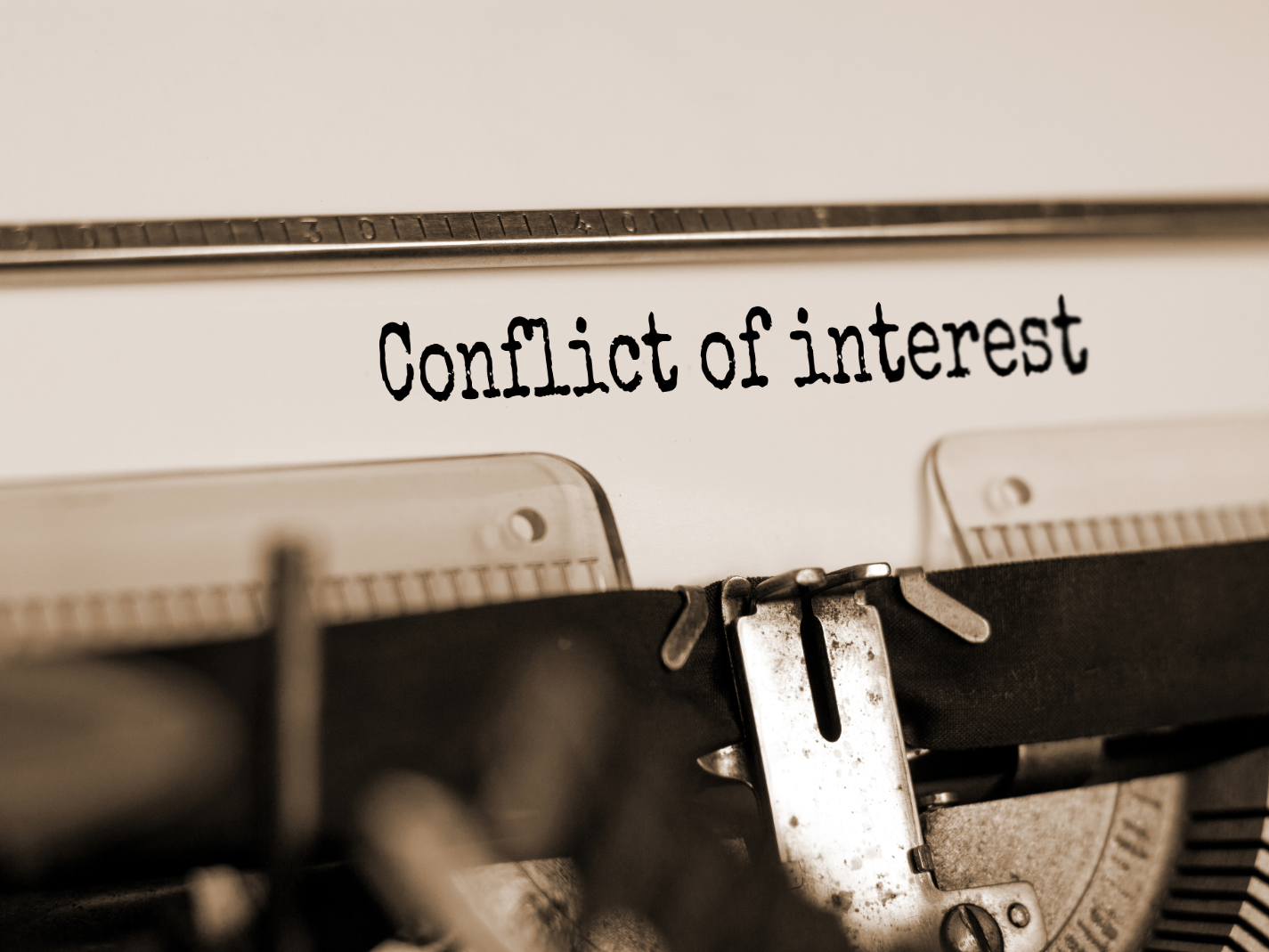
Of late, scholarly journals and law reviews are now asking would-be authors to fill out a conflict of interest form. What is going on here? What is a conflict of interest?
Perhaps the clearest conflict of interest in such academic publications is a chemist writing an article exonerating a pharmaceutical company from charges of malfeasance while in the pay of this very corporation. Or, to put a social science spin on the matter, an economist employed by the XYZ Corporation attempts to publish an essay supporting worldwide free trade, which, let us posit, would benefit that organization.
[RELATED: The Curious Ethics of Some Ethics Professors]
Here is a direct quote on this matter from Taylor and Francis, publisher of numerous academic journals in social science and much more:
A competing interest can occur where you (or your employer, sponsor or family/friends) have a financial, commercial, legal, or professional relationship with other organizations, or with the people working with them which could influence the research or interpretation of the results. Competing interests can be financial or non-financial in nature. To ensure transparency, you must also declare any associations which can be perceived by others as a competing interest.
A conflict of interest can occur when you, your employer, or your sponsor have a financial, commercial, legal, or professional relationship with other organizations or the people working with them that could influence your research.
When you submit your paper to a journal, full disclosure is required. The journal editor will firstly use this information to inform their editorial decisions. Then they will publish such disclosures to assist readers in evaluating the article. Or, the editor may instead decide not to publish your article on the basis of any declared conflict of interest.
What would result from such an author’s admission on the part of the scholarly periodical? It all depends. It ranges from increased scrutiny of such an essay to outright refusal to publish it.
How shall we assess this relatively new publishing initiative? There are problems with it.
First of all, it is all too often employed in a biased manner. As the two aforementioned cases exemplify, it is typically used against commercial interests, not governmental ones. Yes, a beneficiary of a chemical company or a free market think tank might well be inclined in the direction of the interests of his employer. But so might a beneficiary of government largesse be biased in support of that organization; he or she would certainly not wish to attack it directly. Yet, state institutions are seen as ends in and of themselves, so there cannot possibly be any conflict of interest in supporting them.
More basically, criticizing any conflict of interest, whether on the right or on the left, is engaging in an argumentum ad hominem. This is an informal fallacy in logic. The criterion for publication should be truth, the whole truth, and nothing but the truth. Motives are entirely secondary. No, check that. They are altogether irrelevant.
[RELATED: Christian Ethics Are the Antidote for Research Misconduct]
The point is that there is nothing untoward in having a conflict of interest. A psychotherapist has one. If the patient is quickly cured, this practitioner loses a source of income. A doctor has a conflict of interest. If he does a good job and his patients are healthy, they will have less of a need to seek his expertise. A lawyer has a conflict of interest: if he excels in his calling, his clients will have less need of him. Ditto for an accountant: if he keeps the books well, the Internal Revenue Service will have less reason to interact with his clients. Nor is this phenomenon limited to such white-collar workers. It applies as well to plumbers, painters, electricians, and carpenters. The taxi or Uber driver has an incentive to take a roundabout path instead of the cheaper one that will deliver his passenger more quickly and cheaply.
All a conflict of interest means is that the person in question has a motive to provide less quality service than the implicit contract for which he is morally obligated to provide calls. But if such motives were sufficient to be called into question, it is difficult to see why this would not apply to just about everyone. According to that aphorism, we would all be in jail if we could be penalized for our thoughts. Something similar applies to conflicts of interest in academia and academic publications.
Image: Dzmitry – Adobe Stock – Asset ID#: 389926813